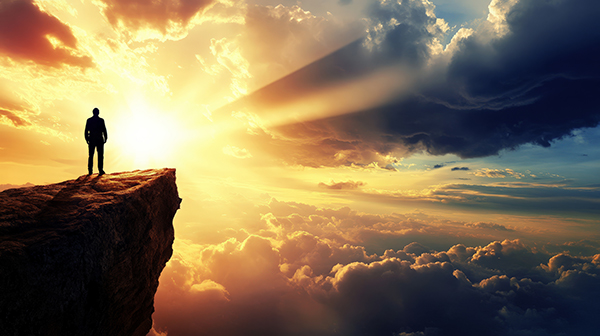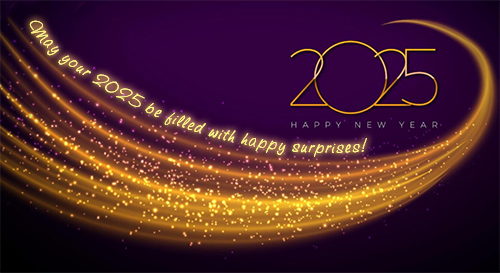Powerful Mind Part 15
Welcome to this week’s Bill Harvey Blog, February 7, 2025
Created June 16, 2023
Read Powerful Mind Part 14,

From our earliest experiences, people were telling us how we should be. For the first five years of our life, possibly the first 25, and unfortunately probably until the last breaths we take, we are very malleable creatures. The plasticity of our brains is widely known: we are constantly building new neural connections, which can then take on a life of their own, able to cause some of what we say to ourselves internally. We are particularly impressionable when we first come into the world for on our own, we know nothing, except the obvious physical needs as they arise, and so our instinct is to look for incoming advice.
Given these basic conditions, it’s understandable that even besides hard-wired primate mimicry programming in our genes, we would be largely shaped by each other. Other mechanisms more recently discovered such as mirror neurons enable our empathy with each other, serving a pro-species-survival behavior pattern of cooperation which has enabled us to erect the many artifacts of what we call civilization.
Freud, in what I feel is his most important book, Civilization and Its Discontents, comments based on his pioneering experiences of psychoanalysis with patients, how he perceives a common thread across neurotic people (today I believe he would classify us all that way), a pattern created by the thwarting of inner motivations by the constraints placed upon us by our particular form of societal civilization. From his sample, he concluded that the main problem was the limitation which most societies on Earth (his sample was mostly European upper class) place upon free sex. Free in the sense of being able to have sex with all the people that seem sexy to you. Had his sample been representative of the population of the planet, his focus on sex may or may not have remained the same. The total number of ways in which our behavior has been shaped by our laws and social conventions is far more all-encompassing than as relates to sex.
As each of us grows up we generally accede to the demands placed upon us to achieve acceptance and a sense of belonging.
This is one of the fifteen primal motivations discovered by my research. The scrip we pay for belonging is conforming. Sometimes that conforming is comfortable and sometimes it rankles us inside, but we go along with the game for safety and support within the herd. Freud’s wider point was that excessive conforming leads to neurosis, an early stage of insanity (disconnection from reality). Just as there are pre-cancerous states, there are also pre-insanity states.
Neuroscience and psychoanalysis both have many explanations to the phenomenon of our tendency to be influenced from the outside. My own method, concentration introspection, goes back much earlier than either of these two potent modern mind sciences, spanning millennia from the Rig Veda through the work of Freud, Jung, William James, Abraham Maslow, Mihaly Csikszentmihalyi, and John H. Flavell, who gave it a new name, metacognition, in the 1970s. All of these methods sheds more light on how it is that each of us is capable of being influenced in extraordinarily powerful ways from the outside – typically, without our realizing the full significance of the process, and its spread of effects.
From my recent media work, in collaboration across many industries and academia, where there is much to be learned from the scientific work of others, we now know that McLuhan was more right than he himself knew. He said the medium itself was more powerful than the messages which came through the media. He was referring to television and never claimed to have seen the digital future we now live in. And yet, the latest evidence about digital media shows that McLuhan’s concept is proven right in media he never anticipated.
The latest evidence is that the forced conventions of scrolling, mouse control, skippable and unskippable ads, and relentlessness of ads begging for attention, have caused the constraining of attention windows: digital media users fall into a pattern of giving only a second or two of attention to ads they do not ignore entirely. This is quite different from television, where under ideal circumstances of ad-context resonance, 15 seconds of immersive attention can occur when the viewer’s subconscious motivations resonate with the ad’s subconscious motivators.
So our present external world has taken a very strong hand in your life and mine so far.
It will take a lot of metacognition, introspection with concentration, for you to bring on the Observer state in your own castle. The state in which you can intuitively catch yourself thinking something for which you actually have no compelling evidence, but thinking that way has become habitual to you. And what you have been taking to be your very own self when you take your own counsels internally, is actually the residue of all of the imprints that have been made on you by the horde of stimuli you have experienced.
Clearing out excessive other-directedness from your self is a form of purifying the mind.
This purification is central to all of Eastern philosophy. Most of what is generally taken as mysticism is actually codified metacognition, using metaphors recognizable and meaningful in those cultures. Even astrology started as a way of evoking metacognition.
This is another example of how our society shapes us. I just wrote “even astrology” because it is a subject that has been denigrated in our present society. And even I follow society’s rules. I just understand what I am doing and why I am doing it, rather than playing a programmed set of roles, and not even realizing that I actually have a true self underneath all the roles. Realizing your true self from the inside is a freeing experience, and leads to a life living at least sometimes in the Flow state, the state of continuous impregnable happiness and effectiveness, bringing forth your unique gifts to the world.
Allocating just twenty minutes a day to studying yourself objectively (the socially acceptable term is “meditation”) is guaranteed to improve your life, even if it’s already perfect.
You don’t have to sit in a specific position. The main point is to observe your self, observe the workings of your mind. Stay on it, don’t get distracted from it. Watch what is going on in your mind as you unwind. What do you start thinking about first. Why that?
As soon as you realize you’ve been distracted, go back to the task. Have a way of taking ultra-brief notes – key phrases that will bring you back to where you just were. That way you can go on having revelations without worrying about remembering the ones you had a moment before.
Don’t filter things out that you feel like writing down because they might seem obvious to others. You are the only one who will ever see these notes. Unless you decide to publish some of them. Don’t do editing during metacognition, editing is for later. Metacognition is reconnaissance, the Observer state, assimilation of implications can come later, hence the notes.
Love to all,
![]()




